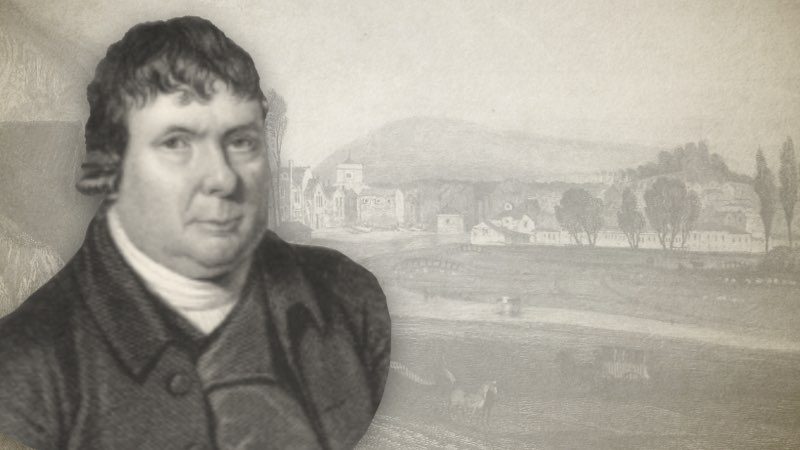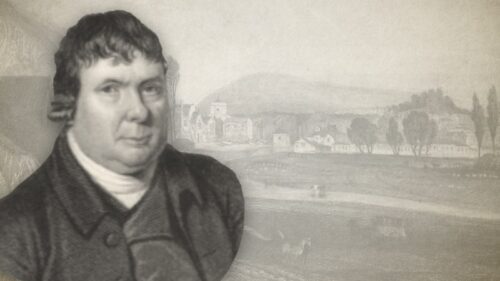-
The Child of Liberty in Legal Bondage: Darkness (1/11)
I come now to treat of this spirit of bondage, and the workings of it; and, when I have so done, shall appeal to the experience of all real believers; and I verily think that, where the redoubtable Mr. Hector has one believer's voice against it, I shall have an hundred for it, because I know that God's saints are in the path of tribulation, where Hector never was. In discoursing on the operation of this spirit of bondage, I shall 1. Treat of the darkness that attends it. 2. Of servile or slavish fear. 3. Of narrowness and contraction. 4. Of wrath and sensible anger. 5. Of suspicion and cruel jealousy. 6. Of rebellion and discontent. 7. Of despondency and desperation. 8. Of sensible…
-
The Child of Liberty in Legal Bondage: Slavish Fear (2/11)
2. Of the fear that attends this spirit of bondage. By which I do not mean filial fear; for that is a grace of the Holy Spirit, planted in the heart by him, and has the goodness of God in Christ for its object. This fear is a reverential awe of a good and gracious God, that presents us under his watchful eye, and him always before our eyes. This fear is a little sentinel, one of the post army of grace, Song vi. 13. For the church is a company of two armies, grace and corruption, which war against each other. This fear is to keep us from departing from God, in which we are counselled to walk. "My son, be thou in the…
-
The Child of Liberty in Legal Bondage: Narrowness (3/11)
3. To treat of the narrowness and contraction of soul that attends a believer under the influences of this spirit of bondage. This legal spirit closes the heart, and bars it up against every warm, cheerful, savoury, and unctuous Christian; yea, such an one will even shun their company and their sight; finding a heart to embrace none, to receive none, to commune with none, no, nor even to seek fellowship with any but those that are in shackles, bondage and slavery, as well as himself. "Like love its like." Hence the Galatians received the Judaizing teachers and their companions, who crept into houses, cordially; they were zealously affected by them, and zealously attached to them; even to the danger of excluding Christ himself. But,…
-
The Child of Liberty in Legal Bondage: Wrath (4/11)
4. To treat of the wrath that works in us, which is this spirit of bondage. "The law worketh wrath," Rom. iv. 15. All that the broken law ministers, reveals, or works, in a man, is the anger, displeasure, indignation, and wrath of God at the sins of men; which wrath is revealed in the law against all ungodliness, and is treasured up there. Fury is not in me, saith the Lord. It is not in him as considered and viewed by the eye of faith in Christ. Here God cannot, God will not, be wroth with us; but get back to the law, and there we are sure to feel it, as nothing but wrath and death can be found in that broken covenant,…
-
The Child of Liberty in Legal Bondage: Jealousy (5/11)
5. To the suspicion and jealousy that attends this spirit of bondage. The Lord our God, "whose name is jealous, is a jealous God," Exod. xxiv. 14. "How long, Lord, wilt thou be angry for ever; shall thy jealousy burn like fire?" Psalm lxxix. 5. The spirit of bondage brings a little of this ingredient with it. The spouse in the Song felt this pretty sharply; she refused to open to her beloved, and so he withdrew; she sought him, but found him not; she called him, but he gave her no answer. He then went down into the garden; that is, down among the more meek, humble, and lowly souls. This she knew, and begged these young daughters to stay her with flagons, and…
-
The Child of Liberty in Legal Bondage: Rebellion (6/11)
I come now to the 6th head. Rebellion and discontent. Jonah is ordered to Nineveh. He rebels and goes to Joppa, in order to flee to Tarsus from the presence of God. He is thrown overboard, and sinks in the belly of hell. Then he is humbled, and prays heartily. God brings him up again, and repeats his command to Nineveh. Jonah goes, and delivers his message, which was all that God required of him. He might then have gone home again, if he would; but Jonah seeks another quarrel, like Lot's wife, who looked back to see what became of Sodom: Jonah "makes a booth, and sits there to see what becomes of the city." He had no orders for all this; he might…


